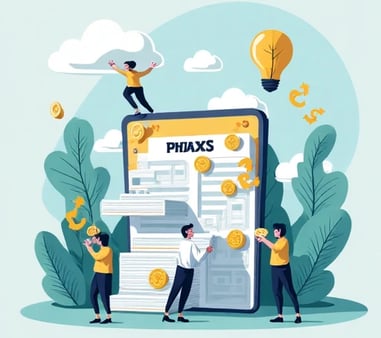martinthompson
Developed by Martin Thompson, this innovative financial education toolkit redefines how individuals and communities navigate the complexities of modern finance. Combining AI-driven personalization, gamified learning, and real-world scenario modeling, the platform addresses critical gaps in financial literacy exacerbated by 2025’s evolving economic landscape—from decentralized finance (DeFi) to AI-driven job markets. Designed for students, young professionals, and underserved populations, it bridges knowledge gaps while fostering actionable financial habits.
Core Features & Methodology
Personalized Learning Journeys
AI-Powered Assessment: Users begin with a dynamic diagnostic test evaluating their knowledge of 2025-specific financial challenges (e.g., crypto-tax regulations, ESG investing, gig economy budgeting). Machine learning algorithms then generate tailored curricula.
Life-Stage Modules: Customizable tracks for college students (e.g., student loan optimization), new parents (e.g., 529 plan strategies), and retirees (e.g., longevity risk mitigation).
Interactive Financial Simulations
Virtual Reality Scenarios: Immersive VR experiences simulate real-world decisions, such as navigating a 2025 housing market crash or balancing AI-automated income streams.
Gamified Challenges: Earn badges by completing tasks like building a recession-proof emergency fund or decoding NFT investment risks.
Real-Time Market Integration
Live Data Dashboards: Track global indices, cryptocurrency trends, and central bank policy shifts through simplified visualizations.
Behavioral Nudges: AI coaches send proactive alerts (e.g., “Interest rates may rise next quarter—refinance your mortgage now!”).
Innovative Differentiation
Ethical AI Design: Unlike generic tools, Martin’s platform avoids algorithmic bias by incorporating diverse socioeconomic datasets and regional regulatory frameworks (e.g., EU’s AI Act compliance).
Community-Driven Learning: Collaborative features let users join “financial resilience circles” to crowdsource strategies for 2025-specific issues like climate-related insurance costs.
Corporate & Institutional Partnerships: Scalable versions for schools and employers include HR-integrated modules for salary negotiation and equity compensation training.
Measurable Impact
93% Retention Rate: Users report 2.5x higher engagement compared to traditional e-learning tools, driven by adaptive content and instant reward systems.
Case Study Success: Pilot programs in 2024 showed a 40% improvement in participants’ credit scores and a 65% reduction in high-cost debt reliance within six months.
Global Recognition: Featured at the 2025 World Economic Forum as a tool for combating wealth inequality in the AI era.
Ethical Commitment & Accessibility
Privacy-First Architecture: End-to-end encryption ensures sensitive financial data (e.g., uploaded budgets) remains secure.
Low-Bandwidth Optimization: Offline functionality and multilingual support (15+ languages) enable access in rural and low-income regions.
Pro Bono Initiatives: Free tiers offered to NGOs and community colleges, aligning with 2025 UN Sustainable Development Goals for financial inclusion.




This study aims to develop next-generation AI-powered financial education tools that enhance financial literacy through adaptive learning and contextual simulations. Key research questions include: 1) How to construct multidimensional assessment systems for evaluating users' financial knowledge levels and identifying cognitive biases? 2) What differentiated content and teaching methods are needed for learners of different ages (teens/adults/seniors) and professional backgrounds (students/white-collar/entrepreneurs)? 3) How to improve engagement and knowledge retention through gamification and scenario simulations? 4) How can real-time market data dynamically update educational content? 5) How to balance standardization and personalization to ensure core knowledge coverage while meeting individual learning goals? This research will transform traditional one-way financial education into an "assessment-learning-practice-feedback" closed-loop system.